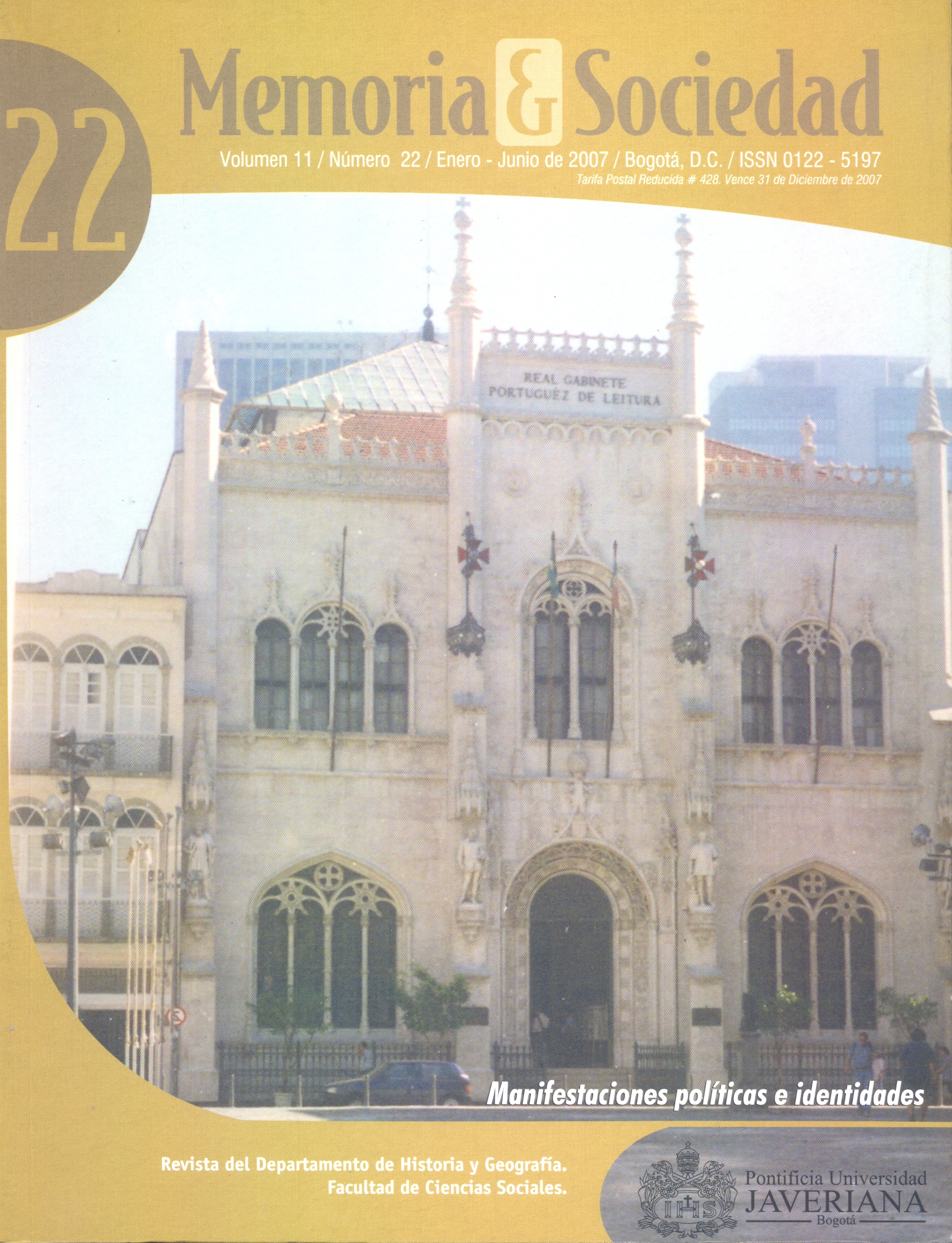Abstract
In 1904, the government of Rafael Reyes, divided the great Cauca in several states, this process continued until 1910 when Popayan remained located in the present-day Cauca. This signified the loss of hegemony over the old Sovereign State. The present work objective to show the way as these dominant castes did not only take advantage of the festival of the First Centennial of the Independence, 1910, to build its new identity, its relation with the past, its collective memory, but also for building a kind of adequate time to the new changeless of the 20th century, preferring to invent a glorious past that identified them like an aristocracy related to the better facts of the past, being able to leave the deep crisis, that the separation of the great Cauca carried them.The journal Memoria y Sociedad is registered under a Creative Commons Attribution 4.0 International Public License. Thus, this work may be reproduced, distributed, and publicly shared in digital format, as long as the names of the authors and Pontificia Universidad Javeriana are acknowledged. Others are allowed to quote, adapt, transform, auto-archive, republish, and create based on this material, for any purpose (even commercial ones), provided the authorship is duly acknowledged, a link to the original work is provided, and it is specified if changes have been made. Pontificia Universidad Javeriana does not hold the rights of published works and the authors are solely responsible for the contents of their works; they keep the moral, intellectual, privacy, and publicity rights.
Approving the intervention of the work (review, copy-editing, translation, layout) and the following outreach, are granted through an use license and not through an assignment of rights. This means the journal and Pontificia Universidad Javeriana cannot be held responsible for any ethical malpractice by the authors. As a consequence of the protection granted by the use license, the journal is not required to publish recantations or modify information already published, unless the errata stems from the editorial management process. Publishing contents in this journal does not generate royalties for contributors.

